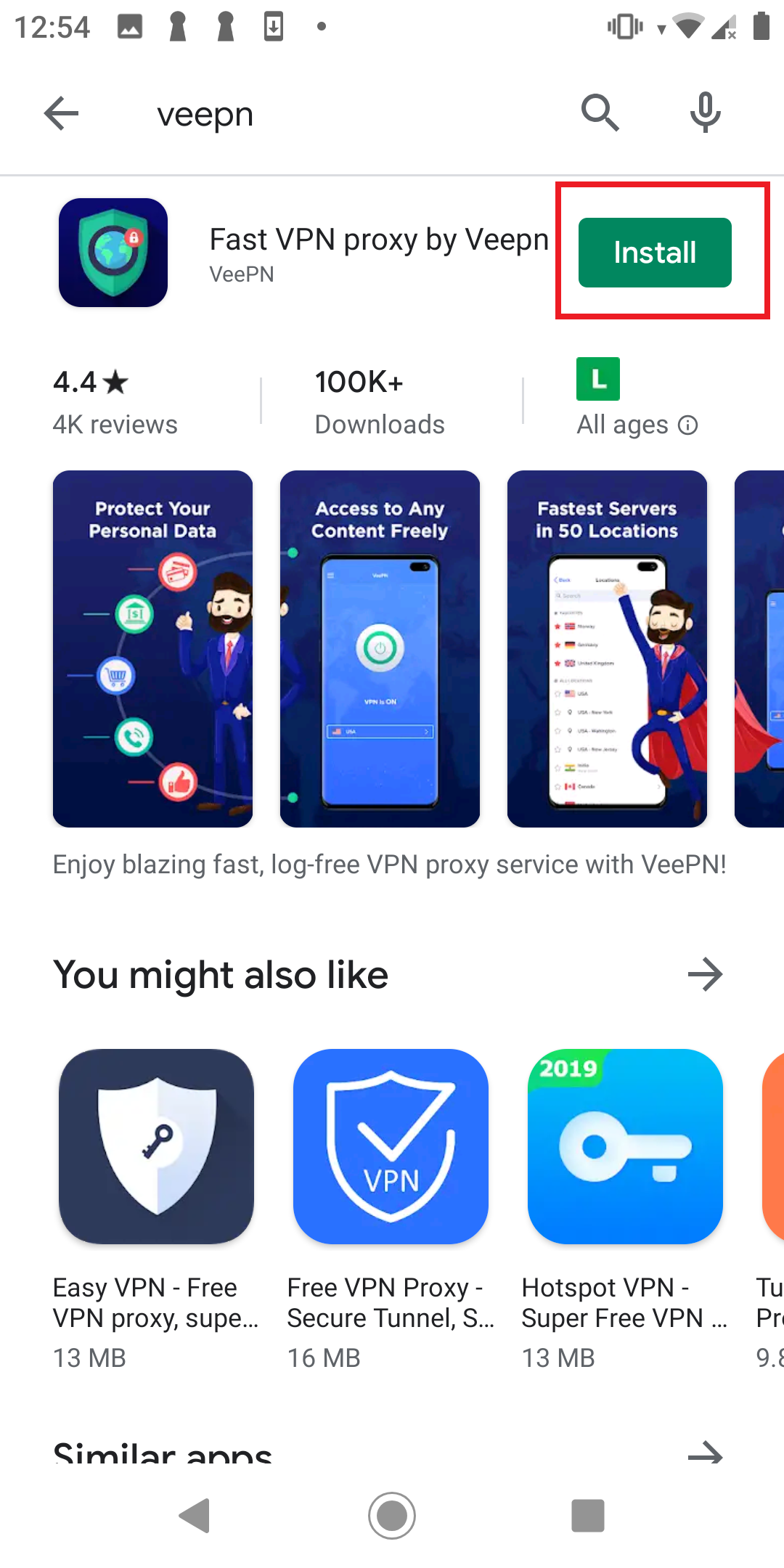

In each case, we effectively closed the VPN, removing all protection, and without seeing any warnings.

This flaw showed up with both OpenVPN and IKEv2 connections, too. If this happened in real life, you'd carry on assuming VPN was up and running, maybe for hours, when in reality you weren't protected at all. The connection died, our internet access wasn't blocked, and again, there was no desktop notification.
#VEEPN SIGN IN WINDOWS#
It got worse when we tried a different test technique, closing TCP connections opened by the VeePN client and Windows service. They'd figure it out eventually, and it's easy to fix - cancel the reconnection attempt to get internet access back, manually click Connect and this time it should work - but is still a usability issue. The bad news is that that client hung on its 'Reconnecting' screen, never managed to re-establish the connection, leaving our internet access disabled and without displaying any notification to tell the user what's going on. The good news is the kill switch correctly blocked our internet access, preventing any data leaks.

We connected to our nearest UK server via IKEv2, forcibly closed the VPN, and. The client has improved significantly over the past months, though, so we were keen to see if this critical issue had been fixed. VeePN's Windows client kill switch was a major problem during our last review, as it utterly failed to do anything useful with IKEv2 connections. VeePN's kill switch has improved somewhat since our last review (Image credit: VeePN) Kill switch Your new IP address is displayed when you connect, and you can now connect or disconnect from the client's system tray icon.
#VEEPN SIGN IN MANUAL#
Server load indicators on the location list help you make smarter manual choices. We're not sure it always makes the best decision - although we're based in the UK, it chose to connect us to France - but it's a step forward. Useful additions include an option to automatically connect when you access new networks the ability to use custom DNS servers and although it's not widely advertised on the website, there's even ad, malware and tracker-blocking.Ī host of further enhancements includes an 'Optimal location' feature, which automatically selects the best server for you. The old options are still there, covering all the basics: startup behavior, your choice of protocol (OpenVPN, IKEv2, 'VeePN Smart TCP' and 'VeePN Smart UDP'), an optional kill switch and DNS leak protection. The Settings box has expanded since our last review. A location list includes all VeePN's countries, while a Favorites system makes it easier to access key servers. There's the simple app-like front end, just a large round Connect button and the currently selected server. The client interface followed the same familiar pattern. VeePN's Windows client has a familiar user interface but it is missing some key information such as your IP address once you've connected (Image credit: VeePN) VeePN is at least saying all the right things, but potential customers shouldn't have to rely on trust alone. That's why we'd like all VPNs to follow the example of TunnelBear (opens in new tab), ExpressVPN (opens in new tab), NordVPN (opens in new tab) and others and publicly audit their systems for privacy and security. There's no way to confirm that VeePN really is following these rules internally, of course. Whether it's necessary to log session dates and traffic used is more open to question, but if there's no record of your outgoing IP address, there's nothing here that can link any internet action back to your account. That's understandable, as VeePN needs to police its limit of 10 simultaneously connected devices. The policy goes on to describe some very minimal session logs, covering 'the total amount of web traffic for each session and session dates', as well as 'encrypted information about the number of connected devices for each account.' We also never store connection logs, meaning no logs of your IP address, your outgoing VPN IP address, connection timestamp, or session duration."

"We do not collect logs of your activity, including no logging of browsing history, traffic destination, data content, or DNS queries. VeePN promises 'no activity logs, no connection logs' on the front page of the website, but we know from experience that the small print can tell a very different story.īut in this case, VeePN's privacy policy (opens in new tab) expands on the claim by telling us everything it doesn't do: VeePN says it keeps no logs on its users but there's no way to confirm this (Image credit: VeePN) Privacy and logging


 0 kommentar(er)
0 kommentar(er)
